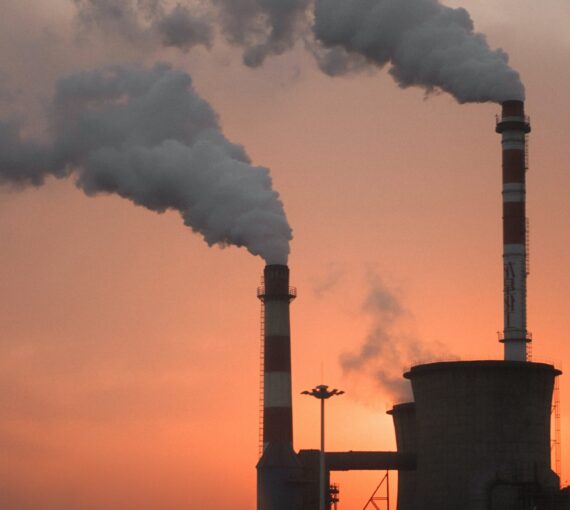
Climate change poses a significant threat to human health. Successful mitigation and adaptation strategies must include an accessible and equitable health-care system because public health and climate justice are inextricably connected.
“Excessive heat-related illnesses, vector- and waterborne diseases, increased exposure to environmental toxins, exacerbation of cardiovascular and respiratory diseases due to declining air quality and mental health stress among others” are potential hazards to human health caused by climate change. Strengthening our health-care system is a crucial component of any adaptation strategy.
Climate change poses a significant threat to the health of our planet and its inhabitants. The growing intensity and frequency of global warming events is putting marginalized and vulnerable populations at greater risk. Without an accessible, equitable and well-supported health-care system, the impacts of climate change on human health will be more acute for everyone.
We are witnessing an increase in extreme weather events, such as hotter temperatures, increased rainfall and flooding, wildfires, droughts and more. These events, in addition to air pollution, environmental degradation and food and water insecurity, threaten physical and mental aspects of human health. The likelihood of severe health impacts, higher mortality rates and reduced access to basic resources is greater for the most vulnerable and marginalized populations.
In Canada, the prevalence of respiratory illnesses such as asthma is a growing public health concern. Contributing factors such as heat waves, air pollution and smog, particularly in urban areas, are expected to worsen with climate change. Another danger to human pathology is “increased emergence of new, re-emergent, and exotic diseases” due to changing environmental conditions. Health-care settings will require advanced detection, recovery and prevention management strategies to adapt.
The heightened awareness of climate change and the strain from witnessing extreme global events pose a significant risk to mental health, with impacts already evident, especially among marginalized populations. Women-identifying folks and young people are particularly subject to adverse mental health effects. Feelings of cynicism, anguish, frustration and hopelessness are common in those negatively affected mentally and/or emotionally by the climate crisis.
“Eco-anxiety” describes an alarmingly rampant mental health condition characterized by extreme worry about the environment and distress from experiencing climate change.
“Eco-anxiety” describes an alarmingly rampant mental health condition characterized by extreme worry about the environment and distress from experiencing climate change.
We are all vulnerable to the negative effects of health inequities spurred by climate change, but some are more likely to experience exaggerated consequences than others. For example, the extremity of coastal flooding one may experience depends on factors such as housing type and location, access to mitigation resources and ability to secure financial resources for the damage. Similarly, those with intersectionally marginalized* identities have compounding inequities that exacerbate health challenges compared to others who are supported by key conditions that enable resilience. It is noted that “women may experience increased climate-related anxiety and post-traumatic stress disorder, while also taking on disproportionate caregiving roles” during climate hazards. Identifying determinants that escalate one’s vulnerability is a vital process of developing adaptation strategies and infrastructure for equitable health management and climate resiliency.
Those with intersectionally marginalized* identities have compounding inequities that exacerbate health challenges compared to others who are supported by key conditions that enable resilience.
Equitable and climate-resilient health care systems are a necessary component of a just and climate-resilient future. A strengthened health-care system relieves the cataclysm of climate change by addressing immediate health challenges posed by the climate crisis and contributing to long-term adaptation and mitigation. This is especially critical for the vulnerable and marginalized populations that have been long affected by the climate crisis. Minimizing direct health impacts by effectively monitoring and responding to climate-induced health issues, such as heat-related illnesses, respiratory diseases and mental health stress, boosts human wellbeing.
Climate-induced health impacts will lessen if the degree of climate change is limited, which will alleviate the high demands on our health-care system. Without the added pressures of environment-related emergencies, health facilities can have greater capacity, better quality of care and reduced costs, among other co-benefits. This underscores the interconnectedness of health and environmental sustainability.
Climate-induced health impacts will lessen if the degree of climate change is limited, which will alleviate the high demands on our health-care system.
Health facilities can also contribute to reducing greenhouse gas emissions through waste reduction, energy efficiency, expanding virtual care options, sustainable alternatives for purchasing and prescribing, etc. “The commitment for physicians to ‘do no harm’ extends to the planet”. Several medical professionals are doing their part by advocating for a net-zero system by 2050; learn more here.
A just and climate-resilient society supports the wellbeing of all its members equally by implementing coping mechanisms and comprehensive policies and procedures that adapt to, mitigate and reduce the risks of climate change. As such, public health must become a consideration for all climate change adaptation and mitigation plans to address pressing and predicted health-care challenges and risks.
*Intersectionally marginalized are those who may be discriminated against in more than one way because they hold more than one historically oppressed identity. Grounds for discrimination include, but may not be limited to, age, race, sexual orientation, gender, disability, marital status and criminal convictions.


